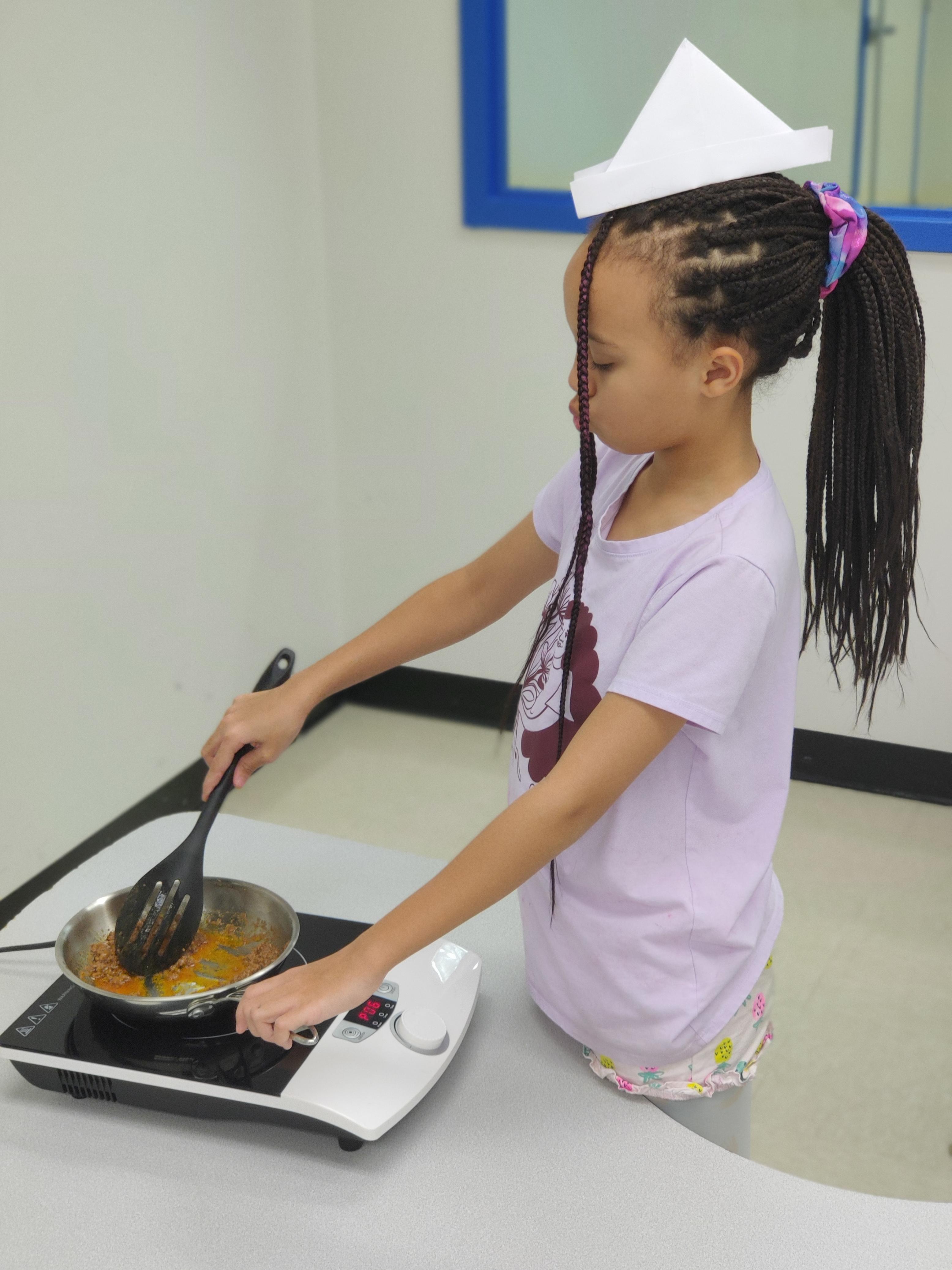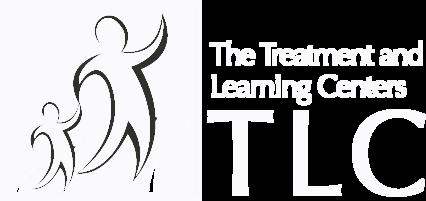








Happy Spring. I am not sure why, but I am waiting for Spring with more anticipation than usual this year The longer, brighter days and the warmer weather will be welcome after the recent winter months And with the spring weather comes more opportunities for outside activities… so get out to explore and enjoy nature. The springtime is also a busy time for TLC’s Outpatient Programs – Speech-Language and Occupational Therapy and our Testing, Tutoring and Counseling departments. We hope you enjoy the news and information we are sharing in our Spring newsletter.

How many times have we heard this in our lives? In the not so recent past, children were expected to sit without fidgeting or moving during learning activities. If they didn’t, there could be a punishment or reprimand. Fortunately, things are changing, and research has shown that movement and brain breaks should be built into every child’s routine – frequently throughout the day.
Movement breaks offer kids a mental and sensory break. This is particularly critical for students with sensory processing disorder (SPD), ADHD, dyspraxia, or other classroom challenges. But movement breaks are not only important for children. A recent NIH study concluded that "Classroom Movement Breaks Reduce Sedentary Behavior and Increase Concentration, Alertness and Enjoyment during University Classes” (Published online May 24, 2021)
Here are 5 simple ways to incorporate movement into our children’s daily lives and to add movement to learning
Use your child’s interests Ask yourself, what does your child enjoy?
Trains, cars, stars, and nature can be of great interest to kids and boost their attention to the task. Incorporating favorite toys into movement activities gets the child engaged. Using characters from a favorite book or movie can also be included in learning. Adding their favorite animals to do animal walks as a movement break before sitting to focus could be motivating!
Ask kids to respond without words. Some children may have difficulty with processing information. Their brain needs a few extra seconds to process the question and then form a response. Add movement! Kids can put thumbs up, hold up cards with yes/no, or even stand up when they know the answer. Another idea is to add movement to concepts. If you’re teaching prepositions, ask the child to put an actual item on top of the table, under the chair, to the left of the book, and so on Teaching left and right is more fun when kids point to their right or left, jump forward/backward or place an item to the right or left
Use alternative seating. It is important to remember that some children learn best and retain
information when they are up and moving around – instead of sitting quietly in their chair. Having different seating options at home and/or school can maximize learning. Sitting in a rocking chair, bean bag or inflated cushion provides our bodies with subtle movements that can help attention and focus. And you don’t always need equipment or special chairs

simply laying on the floor to assemble a puzzle works well.
Stand up! We all sit at our desks for longer than we realize. Kids often sit at their desks for entire class sessions. Research has shown the benefits of standing, so let kids stand when they need to. Most desks can be adjusted to a taller setting. Even a few minutes of standing can improve learning and movement boosts oxygen to the brain.
Add music to learning. Before a math lesson, or prior to reading and writing, add music Gonoodle com has fun and creative brain breaks and catchy songs While kids are working independently on handwriting or lessons, play classical music When kids feel slow and tired, play upbeat music, OR even try doing the chicken dance, Cha-Cha Slide or similar tune
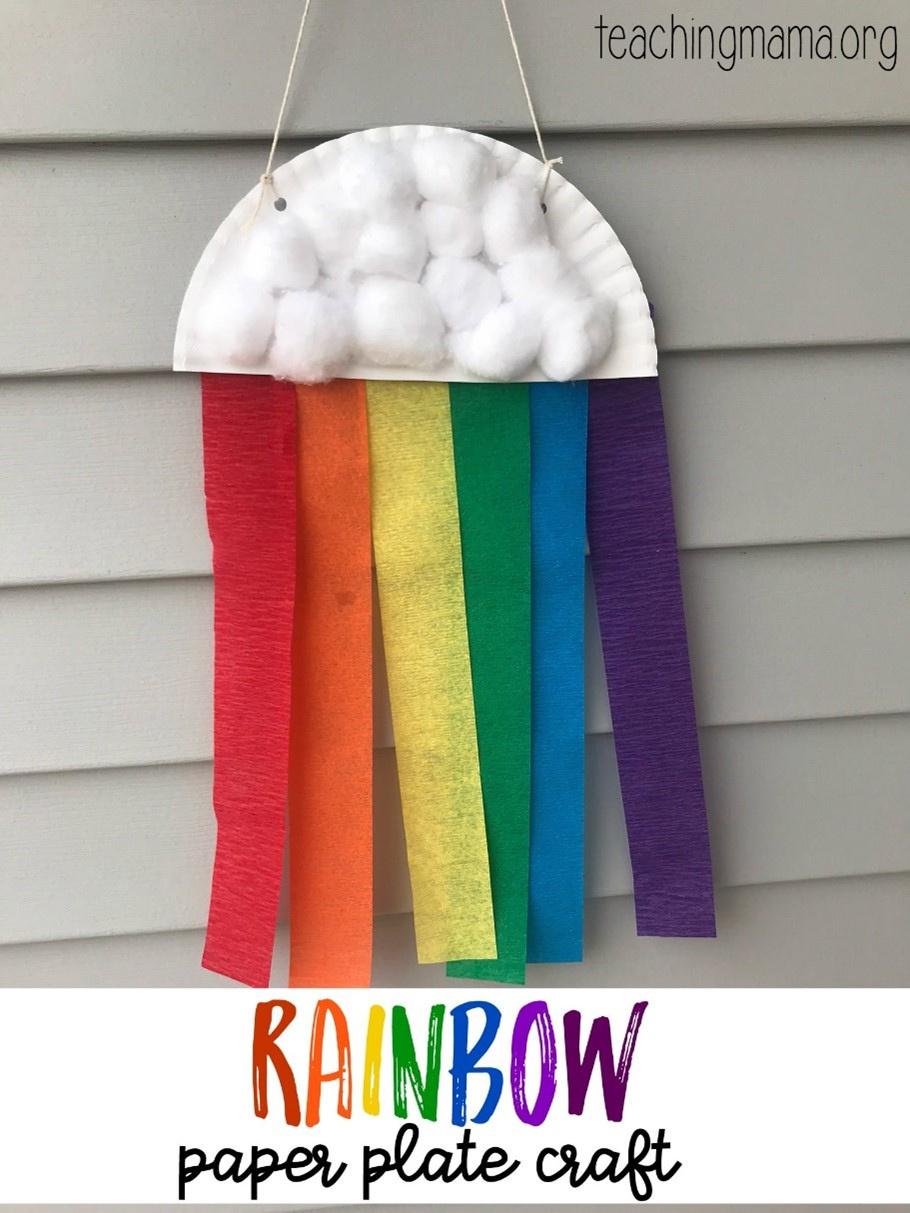
different colored strips of either paper or crepe paper
a paper plate cut in half
glue
scissors
cotton balls
string or ribbon
Glue the cotton balls to the paper plate. Talk with your child about how the cotton balls and glue feel. Model describing words such as soft and sticky. Then cut strips of paper or crepe paper and glue to the back of the plate Talk to your child about the different colors, model some action words such as “cut,” “rip,” “glue,” “put on,” and how some strips are wide and some are skinny. Encourage your child to glue them on and to decide what colors are glued on next
Last, cut or punch a hold in each corner of the plate and add a ribbon, yarn, or string so you can hang up your masterpiece When your child notices their artwork, use that as a time to remember making it together and model those concepts all over again!


Camp is in session for children ages 3 to 7 years! Voted the best summer camp for children with disabilities for two years in a row by Washington Parent, our therapeutic camps are where fun with friends never ends! Each camp includes a small adult/camper ratio, engaging activities and themes, and are led by an occupational therapist and speechlanguage pathologist.

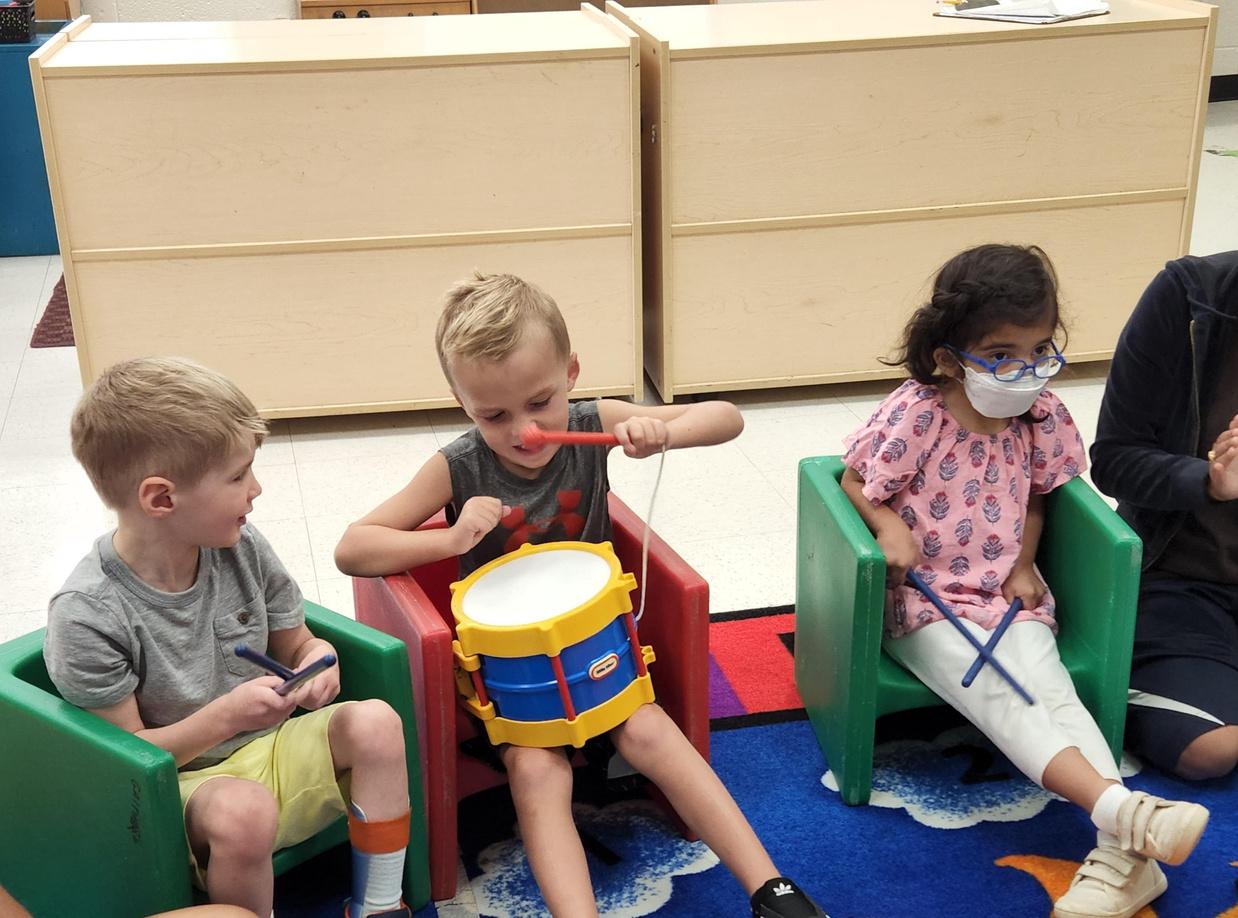
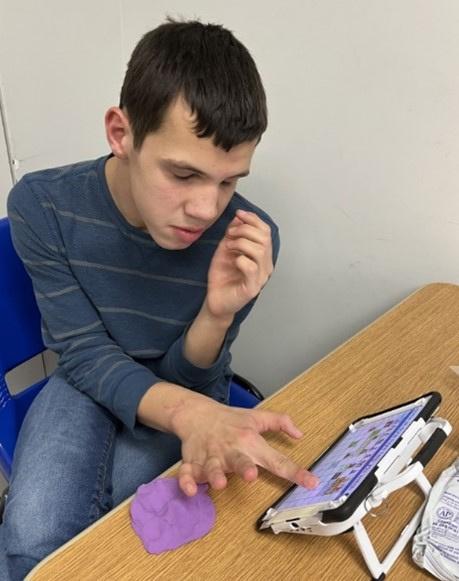
Click here for more information or to register. Join us for our virtual Camp Open House that is scheduled for March 14 at 12pm and 6:30pm. Email
TLC’s Outpatient Speech-Language Pathology Department has a variety of services available to help children with disabilities. Contact us to hear more about our Feeding Therapy program and our speech-language therapy services, including our Augmentative and Alternative Communication (AAC) evaluations and treatment for children and young adults of all ages. We have the expertise to help your child develop their communication skills! Click here for more information on AAC and how our services can help your child!

Looking for tips to help your picky eater? See our article in Washington Parent Magazine for some books to encourage your child’s feeding skills
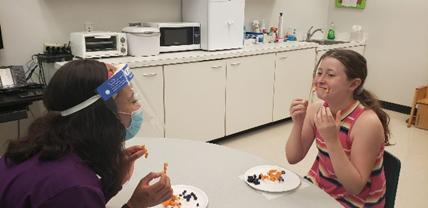
We are proud of outpatient speech-language pathologist Meika Billings-Dopwell, M S , CCCSLP for having her article published on the ASHA Leader, a publication of the American Speech-Language Hearing Association Meika shared great tips on keeping young adults engaged during therapy. Her full article is found here
The Occupational Therapy and Speech-Language Pathology Departments will be having free virtual and inperson screenings in April and May. Not sure if your child needs a speech-language screening? Check out these indicators and see if a screening would be a good next step for your child. Contact us at outpatientscheduling@ttlc org or 301-424 5200 x159 to schedule your free virtual or in-person screening, speech-language, feeding, and AAC evaluations and therapy

BYAGE18MONTHS,IFYOURCHILD:
HASNOTBEGUNVERBALIZINGFIRSTWORDS DOESNOTRESPONDTOHIS/HERNAME DOESNOTFOLLOWSIMPLEDIRECTIONS
BYAGE2IFYOURCHILD:
DOESNOTHAVEABOUTA200-WORDVOCABULARY DOESNOTUSETWO-WORDPHRASES(EG,“MOREJUICE”) DOESNOTDEMONSTRATESIMPLEPRETENDPLAYSKILLS
BYAGE3IFYOURCHILD:
DOESNOTUSEATLEASTTHREEWORDSENTENCES CANNOTANSWERSIMPLE“WHO”AND“WHAT”QUESTIONS USESSPEECHTHATISNOTUNDERSTOODABOUT75%OF THETIME CANNOTTALKEASILYWITHOUTREPEATINGPARTSOFWORDS
BYAGE4IFYOURCHILD:
CANNOTASKWHENANDHOWQUESTIONS CANNOTTALKABOUTWHATHAPPENEDDURINGTHEDAY CANNOTUSPRONOUNS,LIKEI,YOU,ME,WE,ANDTHEY
BYAGE5IFYOURCHILD:
CANNOTUNDERSTANDWORDSFORORDERLIKEFIRST,THEN, NEXT,LAST USESSPEECHTHATISNOTUNDERSTOOD100%OFTHETIME (WITHSOMEMISTAKESONSOUNDSSUCHAS/R/,/L/,OR“TH”) CANNOTTELLASHORTSTORY CANNOTMAINTAINACONVERSATION
The Testing, Tutoring, and Counseling department has been busy in the community. We are providing reading intervention services for Butler Montessori and Psychoeducational Evaluations for Sidwell Friends School We are continuing to offer counseling, tutoring, and evaluations for your families!
It’sestimatedthatchildrenloseupto40%of gainsduringtheschoolyearinasummer withoutacademicenrichment TLC’stutoring teamcanhelpyourchildkeepthegainsthey madeaswellastargetacademicskillsthatneed tobeimproved
Herearesomewaystokeepyourchildengaged andlearningthroughthesummer.
Read,Read,andReadsomemore!Make dailyreadingagoalinyourfamily Haveolder kids?Makeitabookclub!Findaseriesthatyou canreadwiththem.Setgoalsforthechapters youallwillread,thencometogethertodiscuss thebookseveraltimesperweek.
Goonhikesandexplorethescienceof nature.Readwithyourchildatopicinthe naturalsciences,thengooutandexploreit together!
Don’tforgetmath!Forkidswhoneedbeefing upontheirautomaticmathfacts,usedrillsand shortpractices.Youcanalsouseonlinemath learningappstosetgoalsforpracticeandskills attainment
AfewtipsfromTLC'spsychologiststohelpyourchildwith planningandorganization
PreschooltoKindergarten
Keepitsimple-Letkidschoosefrom2-3toysatatimein play
Usea"toylibrary"systemtoputawaysometoys/games forafewweeksatatime Theywillseemfreshandnew whentheycomeback!
Organizechild'sbedroomandplayspacefromtheir perspective-usingeasycontainerswithpicturelabels
Reducedistractions-keepscreensandTVoffduring playtimeTeachtimesensebyusingsandtimers and calendarswithpictures
Takeapictureofchild"readyforschool"andpostitnear thedoortoshowprideanduseasaguide
Helpthemplanandcarryoutstepsforarecipe,teaparty, orlemonadestandModelhowyouasparentsolve problemsandplan("talkoutloud")
Playgamesthatrequirememory,planning,andself-control (Simon,Twister,Red-light/Green-light)
Makechoresmorefun:"I'llpickuptheblueandyellow blocks-yougettheredsandgreens-GO!"
School-AgetoTeen
Keepitsimple-Haveaclutter-freeworkspacewithneeded supplies
Takethefirst10minutestosortbackpack/binder,think andplan
Experimentwithdifferentbackgroundsounds:quiet, music,ornature
Trystandingwhileworkingatacounter,oradifferent locationorseat
Reducedistractions-Keepphoneputawayandonlycheck duringbreaksifatall
Makeaprioritylistforhomework,crossoffcompleted tasks
Helpstudentestimatehowmuchtimeataskwilltake,then seeiftheywereright
Planbreaksafterevery10,15,or20minutesofworktime Highlightkeywordsininstructionsbeforestarting Puthomeworksheetsallinonefoldertotakehome/turnin
